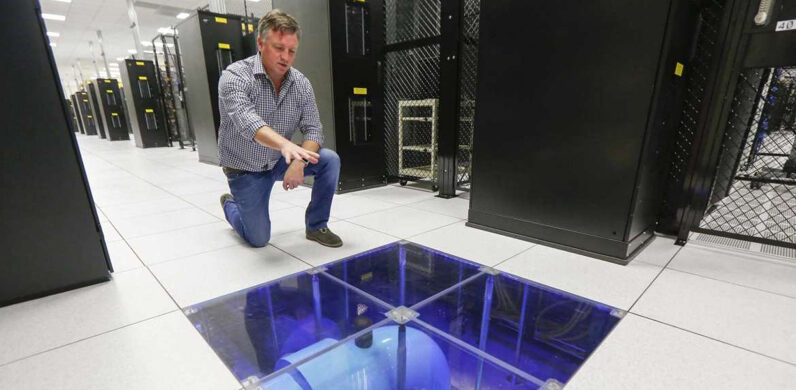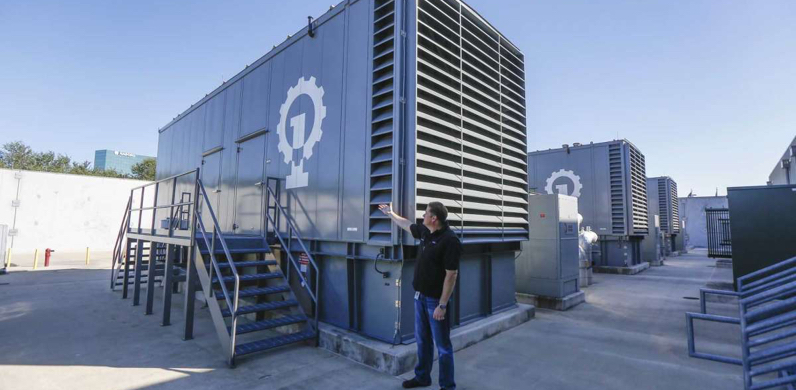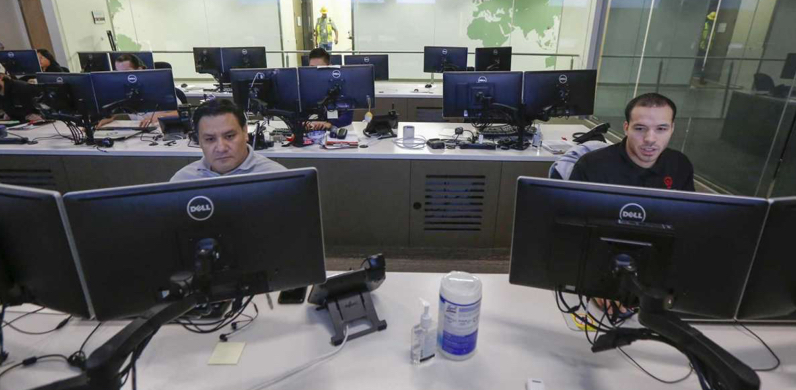
For a brief moment at a Houston-area business luncheon this month, talk turned sinister. No one gasped, but something spooky was said: Climate change is going to hurt bottom lines.
Even as moderator James Hackett, chairman of Alta Mesa Resources and former CEO of Anadarko Petroleum, clarified his opinion that the climate has always been changing, the long-time oil and gas executive asked his guest about the financial risk posed by climate change to energy companies and the economy at large.
“If you go to leaders of this state, Houston being a great example, you can’t have a conversation where this subject doesn’t come up,” responded Robert Kaplan, president of the Federal Reserve Bank of Dallas. “Should we invest billions in infrastructure, reservoirs, reinforcing ports? A lot of the nation’s petrochemical and refining infrastructure is vulnerable in the next storm.”
The interaction provided a glimpse into the business community’s mounting anxiety over how to reduce the risk of climate change to physical assets. Climate events (such as storms, droughts or wildfires) were once considered unusual occurrences, or “acts of God.” But now, amid dire predictions from scientists and particularly since Hurricane Harvey in 2017, companies in the region are coming to terms with a new reality that climate change will bring about the thing they fear most: financial loss.
“If you believe the National Climate Assessment, if it is remotely close to being right, the intensity of hurricanes and frequency is going to go up,” Kaplan continued. “It will have a big effect, economically, on the U.S. and on the world.”

Risk to the economy
For now, severe weather risks are unlikely to materially affect the medium-term economic performance of Texas, according to the Dallas Fed, but those risks may hurt the region’s longer-term business prospects and migration trends. Businesses might be less likely to locate in a region that is expected to get hit frequently by hurricanes and flooding. Existing businesses may be forced to buy more insurance, invest in protective measures — from dams, to backup power, to cooling systems — or move out of the region. And people who spend money and provide a labor force to local companies may choose to leave and stop encouraging family and friends to move here.
“I am concerned about the impact on Houston’s image,” Patrick Jankowski, an economist with the economic development group Greater Houston Partnership, said after Tropical Storm Imelda. “Once again Houston was all over the nightly news.”
Among economists, climate change is beginning to be viewed as a recurring, long-term risk to economic growth rather than a short-run finance problem. The Federal Reserve Bank of San Francisco this month published warnings about the economic impact of climate change and strategies to combat it. The collection of essays included topics such as how cities might finance climate resilience or strategies to combat the effects of climate change.
In Texas, the Dallas Fed’s most recent issue of Southwest Economy, a quarterly publication the bank produces, was climate-change themed, pointing to how Texas is at the center of the challenge in reducing greenhouse gases due to its energy sector, and highlighted the potential for the state to be a perfect market for wind and solar technologies due to weather patterns.
Wall Street is also starting to take note of the physical risks to assets, which include the increased probability of damaged buildings, power outages and equipment and data losses that can harm portfolios. Earlier this year, McKinsey & Co., one of the world’s biggest consulting firms, launched a research initiative at its internal think tank to study and model physical risks of climate change. Dickon Pinner, a senior partner at McKinsey & Co. who is heading the initiative, said the goal is to marry scientific climate data with financial models.
The idea: If climate data is presented as a financial risk, executives might spend differently. Right now, he said, executives are not including projections for climate events, such as flooding, droughts or extreme heat, in financial forecasts and risk management plans.
Climate data has been relegated to scientific papers, Pinner said. His goal is to turn that data into financial figures. Decades of studying climates provide, he said, “an incredibly rich historical data set that is probably more predictive than many financial models people rely on, because it’s based on physical chemistry and biology.”
The business of preparing for a hurricane
CEOs named climate change as the top risk to their companies’ growth in an annual survey published in September by KPMG, a global accounting and consulting firm. It was the first time that the study, which surveyed 1,300 CEOs across several industries, found climate change as the no. 1 risk, ahead of other worries such as cyberattacks or technological disruption.
Some Texas companies are trying to capitalize on that anxiety, betting that executives are finally ready to throw money at the issue.
Austin-based Data Foundry, a data center where companies can rent space for servers and contract the company to keep those servers running, built its most recent facility in Greenspoint elevated above the 500-year floodplain and strong enough to withstand 185-mph winds – specifically designed to continue operations during a hurricane. The center also has office space, lockers, showers and other amenities for both Data Foundry employees and the employees of its clients if they need to move their operations there during a storm.
Mark Noonan, the chief revenue officer at Data Foundry, said disaster preparedness spending has almost always spiked following a storm, but then business would go back to usual. But that’s changing as severe storms and serious flooding hit the Houston area again and again.
“Over the last several years, we’re seeing that companies are really more forward-thinking about it,” said Noonan. “These storms have helped CFOs and senior-level folks to realize that you need to be ahead of this before there’s a risk for their specific business.”
Blue Iron Technologies, a Houston IT services company, moved both its operations and servers to Data Foundry’s Houston location after the staff grew frustrated with power outages due to storms as well as general issues with internet reliability at their previous office in The Woodlands.
“We would miss calls,” said James Johnson, the president. “(We wanted) to make sure we were foolproof in our disaster solutions.”
Businesses are adapting as they gain more experience with storms, executives said. Enchanted Rock, a Houston company that designs and maintains natural gas-fueled backup generators, has found that the shifting attitude toward planning rather than waiting for disaster to strike has boosted business. More wildfires, high winds and floods mean more market potential.
From 2017 to 2019, the company has more than doubled its number of microgrid installations from 64 to 162. Enchanted Rock also recently announced a planned expansion into California, where efforts to prevent wildfires have led utilities to shut off power for tens of thousands of customers.

“Our business, to a large degree, has been driven by the increased occurrences of severe weather events,” said Thomas McAndrew, CEO of Enchanted Rock. “We are ramping up our business in California with the fire prevention (efforts) and power outages. We are seeing opportunities along the entire Gulf Coast and East Coast that we probably wouldn’t have seen before. We’re thinking this is a much bigger opportunity than we thought five years ago.”
Customers now see severe weather events as a trend rather than a one-off event, McAndrew said. After Hurricane Ike, the company expected a surge in business, but it didn’t happen. Company executives still thought the odds of another storm like Ike were pretty slim.
That changed after Hurricane Harvey. Following the storm, Enchanted Rock’s business surged.
For example, Citizens Medical Center in Victoria had to evacuate patients due to power concerns during Hurricane Harvey and decided after the storm to ensure the entire facility could run on Enchanted Rock’s backup generators, rather than only use back up power generation for life support activities. The backup power provider also counts H-E-B, the Texas-based grocer, and Buc-ees, the Lake Jackson-based convenience store, among its customers — companies that depend on reliable electric power to keep perishable inventory from being lost in the event of an outage.
Customers don’t necessarily blame climate change, McAndrew said, but most believe weather-disaster risks are increasing.
“People can argue about why it’s occurring,” he said, “but it is occurring.”
